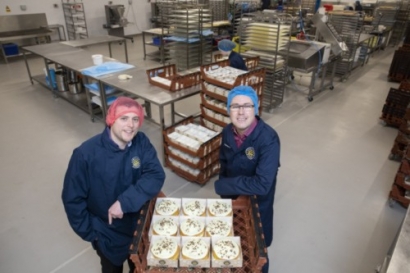
The company, which supplies bread to North Wales’s hospitals, has 111 solar panels on the roof of its bread-making unit while across the road there are a further 44 panels on the new cake-making facility.
In total, their near-neighbors, leading ‘green’ energy specialists Hafod Renewables, has installed twin systems that produce almost 40,000 kWh of electricity a year, enough to power 10 family homes.
According to Hafod Managing Director David Jones, the double system, which cost £30,000, will pay for itself through the feed-in tariff in just five years.
Jones said, “With the onsite savings of £4,000 a year and because they were in time to take advantage of the feed-in tariff of over £1500 annually the system will pay for itself in five years.
“It’s also saving 32 tons of carbon dioxide emissions annually and that’s equivalent to planting 100 trees a year.
“We have worked all over North and Mid Wales and into the border counties but this must have been just about the closest customers we’ve ever had.
“It was literally a case of taking the panels out of the back door of our premises and we were there.”
Henllan Bakery’s ovens are oil-fired but all the mixers, machines and conveyor belts are electric and they’re running pretty much continually.
The bakery has been on its current site since 1975 but the family firm has been going since 1908 and current Production Director Tom Moore, said, “We opened the cake and biscuit bakery across the road in January and created another 20 jobs there and it’s gone very well.
“The solar panels were just the finishing touch but we did want to go greener as a company and we see this as just the first phase and over the next two years we want to look at more ways of being environmentally friendly.
“We are pleased with what Hafod has done and I’ve asked David to prepare proposals going forward through 2020 and 2021.”
The new bakery has been brought online to take advantage of customer fashions and the growing demand for cakes and biscuits and Henllan Bakery is also seeing an increase in demand for its bread, and especially its rolls, which flew off the shelves in last year’s barbecue season.

